Welcome to PEILab 👋
Who We Are
The PolyU Edge Intelligence Laboratory (PEILab), directed by Prof. Song Guo, is developing novel and efficient deep learning architectures, algorithms, and systems over ubiquitous mobile, IoT, and wearable devices. Specific topics of current interest include edge on-device learning, federated learning, and implementation of large-scale deep neural networks in cloud-edge hybrid systems.
Join Us
We are looking for strongly motivated PhD students, Research Assistants, and Postdoctoral Fellows.
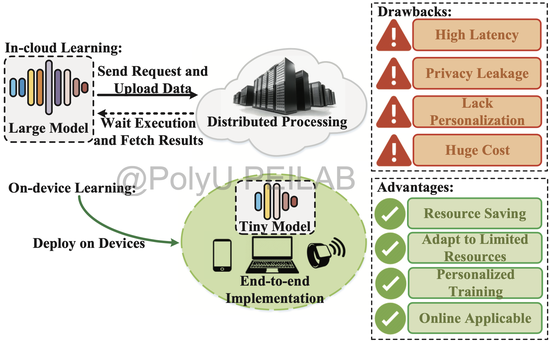
A Unified TinyML System for Multi-modal Edge Intelligence and Real-time Visual Perception.
Our research focuses on the software and hardware synergy of on-device learning techniques, covering the scope of model-level neural network design, algorithm-level training optimization and hardware-level arithmetic acceleration.
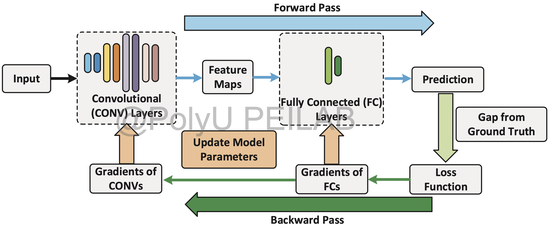
Adaptive Quantization-aware Training and Model Compression.
Our research focuses on the software and hardware synergy of on-device learning techniques, covering the scope of model-level neural network design, algorithm-level training optimization and hardware-level arithmetic acceleration.
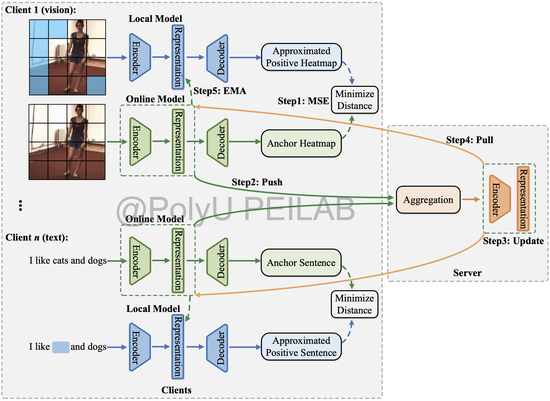
A Unified Contrastive Representation Learner for Cross-modal Federated Learning Systems.
Our research focuses on the software and hardware synergy of on-device learning techniques, covering the scope of model-level neural network design, algorithm-level training optimization and hardware-level arithmetic acceleration.

Progressive Network Sparsification and Latent Feature Compression for Scalable Collaborative Learning.
Our research focuses on the software and hardware synergy of on-device learning techniques, covering the scope of model-level neural network design, algorithm-level training optimization and hardware-level arithmetic acceleration.
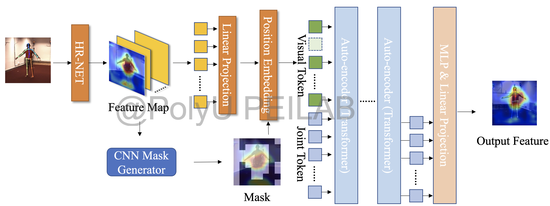
Masked Autoencoders for Occlusion-aware Visual Learners
Our research focuses on the software and hardware synergy of on-device learning techniques, covering the scope of model-level neural network design, algorithm-level training optimization and hardware-level arithmetic acceleration.
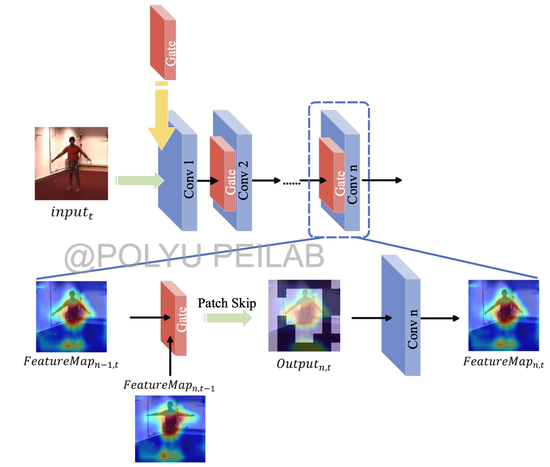
Flexible Patch Skip for Real-time Visual Perception.
Our research focuses on the software and hardware synergy of on-device learning techniques, covering the scope of model-level neural network design, algorithm-level training optimization and hardware-level arithmetic acceleration.
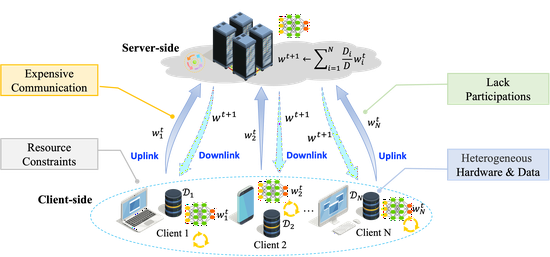
Efficient Federated Learning Framework on Heterogeneous Environment
Federated learning (FL) has been proposed as a promising solution for future AI applications with strong privacy protection. It enables distributed computing nodes to collaboratively train models without exposing their own data.
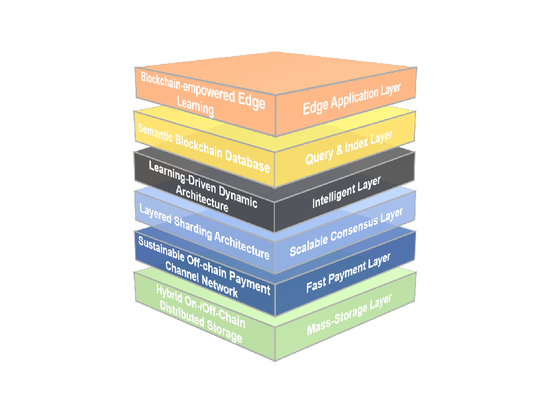
Next generation blockchain system
Our team aims at the next-generation blockchain system with scalability, security, privacy, and intelligence and our proposed architecture is composed of 6 layers as above. In the following, the details of these 6 layers will be explained from top to bottom.
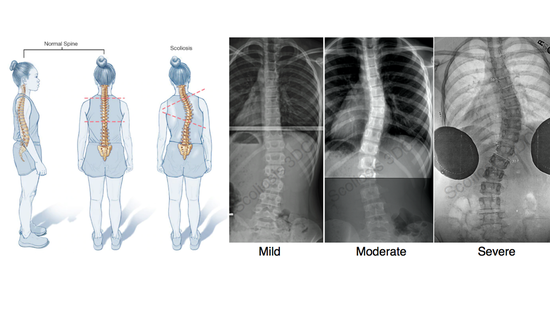
Radiation-free Spine Reconstruction and Posture Analysis Techniques with 3D Imaging
Scoliosis is a sideways curvature of the spine that occurs most often during thegrowth spurt just before puberty. According to the survey and statistics of China Child Development Center, more than 20% teens have scoliosis.
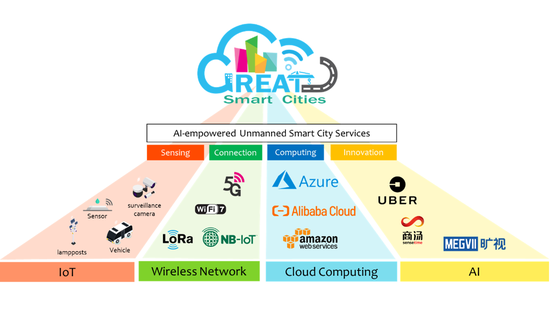
Edge AI in smart city
Research Overview Our team aims to design promising solutions for future AI applications based on edge intelligent technologies, which can empower construction, public health, environment, transportation and other industries, and promote the upgrading of urban intelligence.
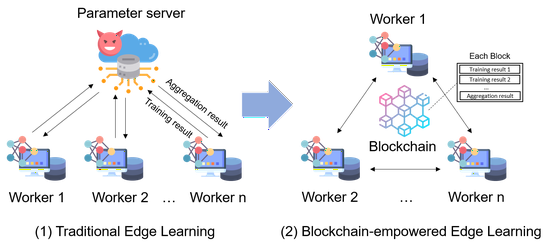
Edge Application Layer in Blockchain-empowered Edge Learning
Blockchain-empowered edge learning is a novel distributed learning architecture to dispense with a dedicated server in traditional distributed learning and provide trustworthy training for edge devices.
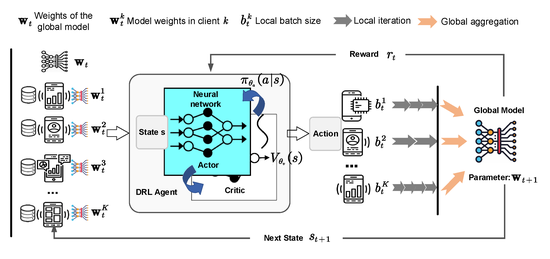
Heterogeneous Data & Resource Constraints- Batch Size Adaptation
To tackle non-IID data challenge in FL, we consider to design a new method to improve training efficiency of each client from the perspective of whole training process.
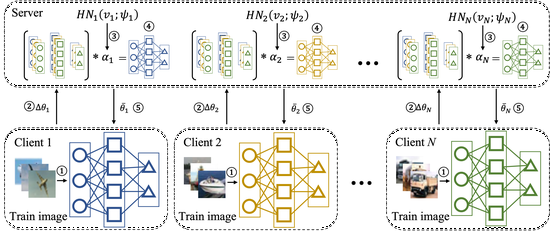
Heterogeneous Data & Expensive Communication- Layer-wised Aggregation
We design a novel pFL training framework dubbed Layer-wised Personalized Federated learning (pFedLA) that can discern the importance of each layer from different clients, and thus is able to optimize the personalized model aggregation for clients with heterogeneous data.
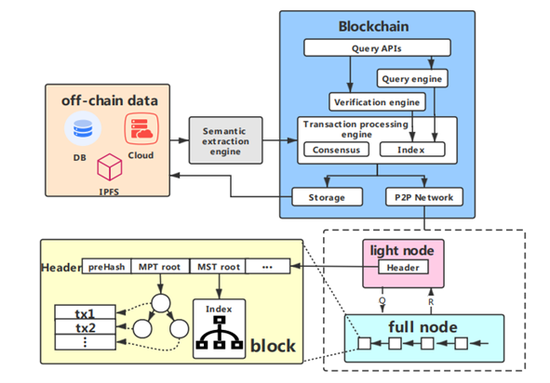
Semantic Query and Index Layer in Semantic Blockchain Database
Blockchain database is a new direction that constructs index on top of blockchain to provide rich query functionalities. The existing works are either insecure because the query process separates from the blockchain consensus, or inscalable because all the data needs to be stored in the block. Therefore, we propose an authenticated semantic database layer for blockchains.
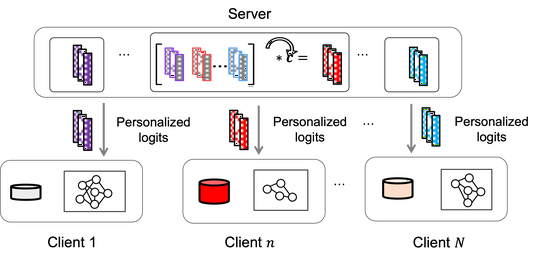
Heterogeneous Hardware & Data- Parameterized Knowledge Transfer
Most existing pFL methods rely on model parameters aggregation at the server side, which require all models to have the same structure and size. Such constraints would prevent status quo pFL methods from further application in practical scenarios, where clients are often willing to own unique models, i.e., with customized neural architectures to adapt to heterogeneous capacities in computation, communication and storage space, etc. We seek to develop a novel training framework that can accommodate heterogeneous model structures for each client and achieve personalized knowledge transfer in each FL training round.
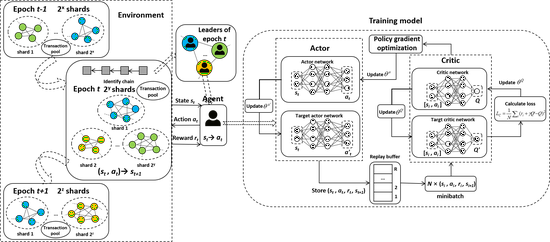
Intelligent Consensus Layer in Learning-Driven Dynamic Architecture
Most existing blockchain systems adopt a static policy that cannot efciently deal with the dynamic environment in the blockchain system, i.e., joining and leaving of nodes, and malicious attack. Therefore, we propose a novel dynamic sharding-based blockchain framework to achieve a good balance between performance and security without compromising scalability under a dynamic environment.
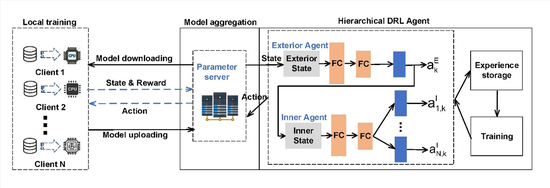
Lack of participants- Incentive Mechanism Design for Federated Learning
A few of works have designed incentive mechanisms for FL, but these mechanisms only consider myopia optimization on resource consumption, which results in the lack of learning algorithm performance guarantee and long-term sustainability. We propose Chiron, an incentive-driven long-term mechanism for edge learning based on hierarchical deep reinforcement learning.
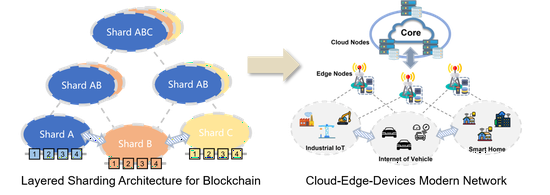
Layered Sharding Architecture for Blockchain
Most existing blockchain systems adopt a static policy that cannot efciently deal with the dynamic environment in the blockchain system, i.e., joining and leaving of nodes, and malicious attack. Therefore, we propose a novel dynamic sharding-based blockchain framework to achieve a good balance between performance and security without compromising scalability under a dynamic environment.
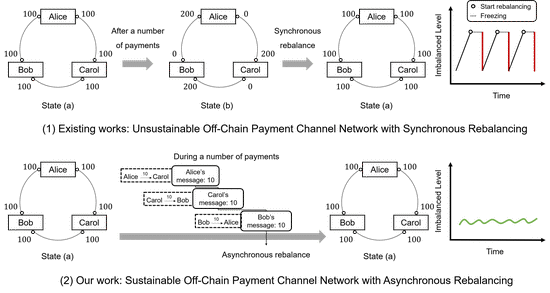
Sustainable Off-chain Payment Channel Network
Payment channel network (PCN) is the most promising off-chain technologies to support massive micro payments for blockchain. The technology has been deployed in a number of blockchains including Bitcoin and Ethereum.
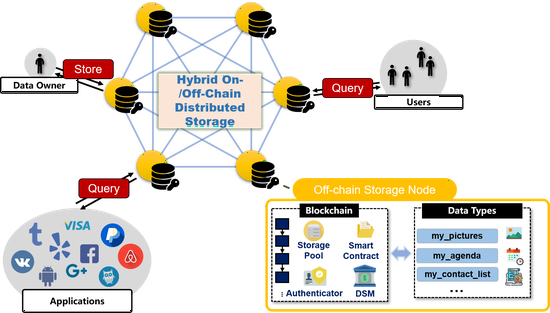
Hybrid On-/Off-Chain Distributed Storage
Personal data produced from widely emerged cyberspace activities are expected to promote information dissemination and engagement, or even make business intelligence more powerful.
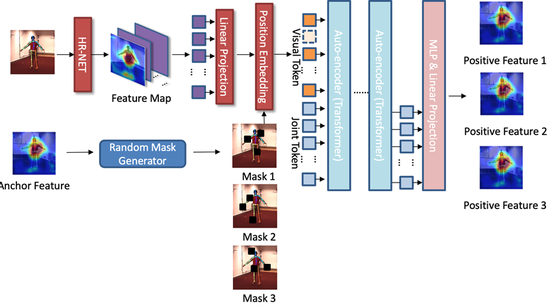
Anti-Occlusion Human Pose Estimation for Scoliosis Rehabilitation
Physiotherapeutic scoliosis-specific exercises (PSSE) have been proved to be effective in scoliosis rehabilitation. PSSE consist of a program of curve-specific exercise protocols which are individually adapted to a patients’ curve site, magnitude, and clinical characteristics.
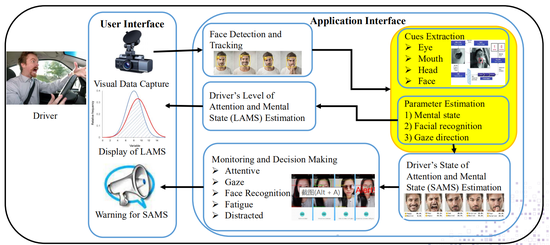
Next Generation AI Video Analytics Detection System on Driving Behavior and Mental Factors
Video-based abnormal driving behavior and mental detection is becoming more and more popular. The key goal is to ensure the safety of drivers and passengers in the vehicle, and it is an essential step to realize autonomous driving at this stage.
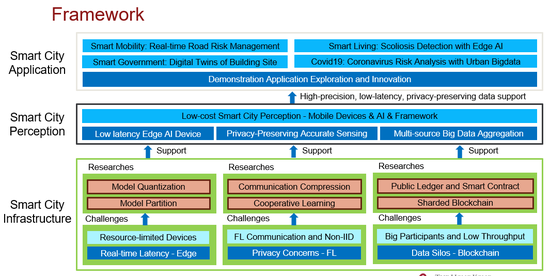
Emergency Risk Management in Smart City
With the emergence and drastic improvement of mobile devices (e.g., phones, tablets, drones, and autonomous vehicles), we are now witnessing an exciting revolution of the digital city.
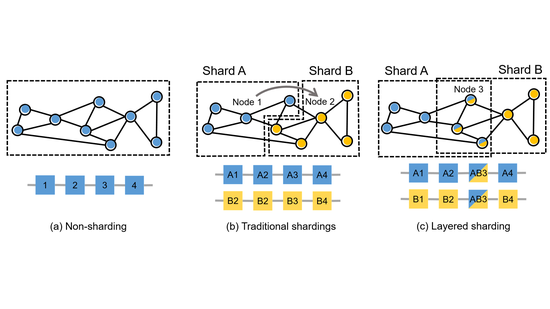
New Architectures and Methodologies for High Performance Sharding Blockchain
Blockchain draws tremendous attention from academia and industry, since it can provide distributed ledgers with data transparency, integrity, and immutability to untrusted parties for various decentralized applications.
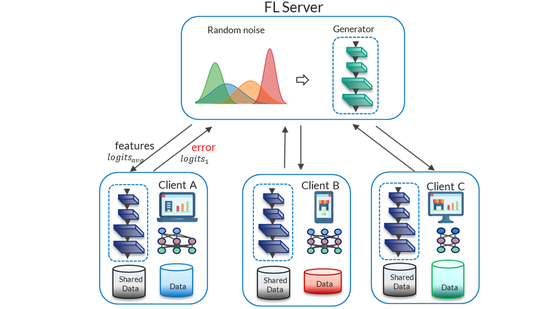
Federated Learning in Resourced Constrained Mobile Edge Network
Federated learning (FL) has been proposed as a promising solution for future AI applications with strong privacy protection. It enables distributed computing nodes to collaboratively train models without exposing their own data.
Latest News
Recent Publications
- Mong Man Wai Building, Department of Computing, The Hong Kong Polytechnic University, Hung Hom, Kowloon, Hong Kong SAR


















